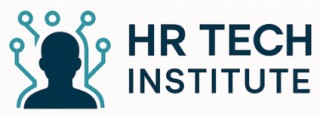The Importance of Reliable HR Tech Services
Why a Dependable HR Technology Platform Matters
In today's fast-paced business environment, reliable HR technology services are essential for maintaining smooth operations. Companies, especially small businesses, rely extensively on services like Trinet to handle their payroll, employee benefits, and compliance needs. Without consistent access to this technology platform, businesses can face severe disruptions.
Trinet and similar Professional Employer Organizations (PEOs) provide a full suite of services that include payroll processing, health and dental benefits, and benefits compliance. This support is crucial for businesses that lack the resources to manage these functions in-house. Additionally, having real-time access to these services via a mobile app or other digital tools allows companies to automate processes and improve efficiency in time tracking and payroll management.
The importance of reliable access is underscored during outages, where the status of services can affect business operations. Companies need solutions that not only provide excellent day-to-day operations but also offer robust support during unexpected service interruptions. Risk mitigation strategies and preparedness plans are vital for minimizing the impact on time and productivity.
To further understand how modern HR technology can enhance resilience, one can explore the insight offered by industry leaders who are unlocking the potential of premium HR networks in workplaces. These insights can guide businesses in leveraging technology to stay resilient even in the face of service disruptions. Unlock the potential of premium HR connectivity in modern business environments and ensure your company remains competitive and compliant.
What Happens During a Trinet Outage?
Consequences of Service Interruptions
When a Trinet outage occurs, the ripple effects can be felt across various aspects of a business's operations. As a Professional Employer Organization (PEO), Trinet provides essential HR services such as payroll processing, employee benefits management, and compliance support. Any disruption in these services can lead to significant challenges for companies relying on their platform.
One of the immediate impacts is on payroll services. During an outage, businesses may struggle to process payroll on time, potentially affecting employee satisfaction and trust. Delays in payroll processing can also lead to compliance issues, especially with federal and state regulations. Moreover, access to the Trinet platform is crucial for managing health, dental, and other employee benefits. An outage can hinder employees' ability to access their benefits information or make necessary changes, impacting their overall experience.
Operational Challenges and Employee Impact
For small businesses, which often rely heavily on Trinet's full-service offerings, the impact can be even more pronounced. Without real-time access to the Trinet app or platform, companies may face disruptions in time tracking and automated processes, leading to inefficiencies. Employees may experience frustration due to the lack of access to critical services, which can affect morale and productivity.
Furthermore, a service interruption can impede a company's ability to provide timely support to its employees. When employees can't access their benefits or have questions about their payroll status, they expect prompt assistance. However, during an outage, the ability to provide this help may be compromised, potentially leading to dissatisfaction and increased stress among the workforce.
To explore more about the potential and challenges in HR technology, you can read about exploring the potential of STAR HR264 in human resources technology.
Communication Strategies During Service Interruptions
Keeping the Lines Open: Best Practices for Communication
During a Trinet outage, maintaining clear lines of communication is crucial for minimizing disruptions. An interruption in services such as payroll processing or employee benefits access can create uncertainty, impacting small businesses and their employees.
Businesses must have robust communication strategies in place to address the challenges posed by service interruptions. Here are some practical approaches:
- Real-time status updates: Utilize the Trinet platform or alternative communication channels to provide frequent updates about the service status. This ensures that all relevant parties are informed about the progress towards restoring services.
- Multi-channel communication: Leverage multiple communication channels such as emails, messages through mobile apps, and intranet posts to ensure employees and management are aware of the situation.
- Centralize information: Create a central hub – like an internal portal – where employees can access up-to-date information and leverage technology to enhance resilience during such times.
- Transparency: Be open about the cause of the outage and the measures being taken to rectify the issue. Transparency builds trust between the company and its employees.
- Support and help: Ensure that a support system is available to answer queries and offer guidance. Employees should feel that assistance is readily available to help them navigate any immediate concerns related to payroll benefits or time tracking.
By implementing these communication strategies, businesses can better support their employees and minimize the operational impact of a Trinet outage. Additionally, these practices serve as a cornerstone for risk mitigation and serve to prepare companies for any potential disruptions in the future.
Mitigating Risks and Preparing for Future Outages
Building Resilience Against Future Outages
Understanding the impact of disruptions in human resources technology involves recognizing the need for proactive measures. Trinet’s platform is central to the seamless operation of payroll services, employee benefits, and compliance—a PEO that many small businesses rely on. Therefore, mitigating risks associated with service outages is crucial. Establishing a risk mitigation strategy begins with understanding your company’s critical HR processes. These processes, including payroll processing, benefits compliance, and time tracking, form the backbone of your organization’s daily operations.- Integrate redundancy measures: Redundancy in technology platforms ensures that backup systems activate during an outage, safeguarding essential services like payroll and employee benefits.
- Enhanced support mechanisms: Strengthening support structures, such as dedicated helplines or enhanced app support, better equips companies to handle real-time interruptions.
- Regularly check Trinet status updates: Being informed about the current status of Trinet services can help businesses anticipate potential issues and react accordingly.
- Investment in technology platforms: Leveraging advanced technology platforms that automate processes can minimize manual intervention, thereby reducing outages' impact and preparing businesses to handle similar events more efficiently.
- Training employees: Equip employees with information and training on how to manage during service interruptions, further minimizing operational disruption.













